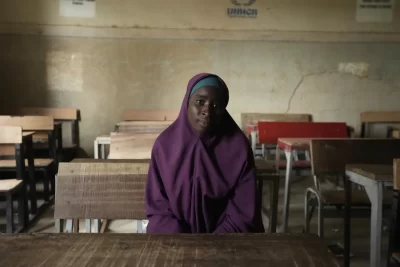
An Alabama police chief said he believes department policies were violated when officers shot and killed a man during a dispute with a tow truck driver, but did not elaborate on what those policies were.
Decatur Police Chief Todd Pinion wrote in a statement Friday that the department has completed an internal investigation into the Sept. 29 shooting of Steve Perkins. The fatal shooting of the Black man in front of his own home has drawn regular protests in the north Alabama city. Perkins, 39, was killed by a police officer as officers accompanied a tow truck driver trying to repossess Perkins’ truck.
The Decatur Police Department said in an initial public statement that officers were called to the scene by the tow truck driver, who said the homeowner pulled a gun. Police said that the man, identified as Perkins, later threatened the driver and “turned the gun toward one of the officers.” Perkins’ family has disputed the police version of events.
Pinion said the city’s mayor will conduct a review and “make a final determination if discipline is warranted and to what extent.” He said the officer who fired the shots remains on administrative leave. The department has not released the name or race of the officer.
An attorney representing the Perkins family, told The Associated Press last month that Perkins did not appear aware that officers were there before they immediately opened fire on him. Perkins’ family issued a statement saying the truck payments were up to date so the truck shouldn’t have been towed.
Perkins’ brother, Nick Perkins, told WAFF that there is a “slight sense of relief” to hear the police chief acknowledge that policies were broken, but that the investigation has taken too long.
“We’ve seen the cameras. We’ve seen the video footage,” Nick Perkins said.
The Alabama Law Enforcement Agency is investigating the shooting.
“This has been a very painful chapter for Decatur and I recognize healing will not occur for many until after all information that can be released has been made public and all determinations on violation of policy and state law completed and potential litigation resolved,” Pinion wrote.







